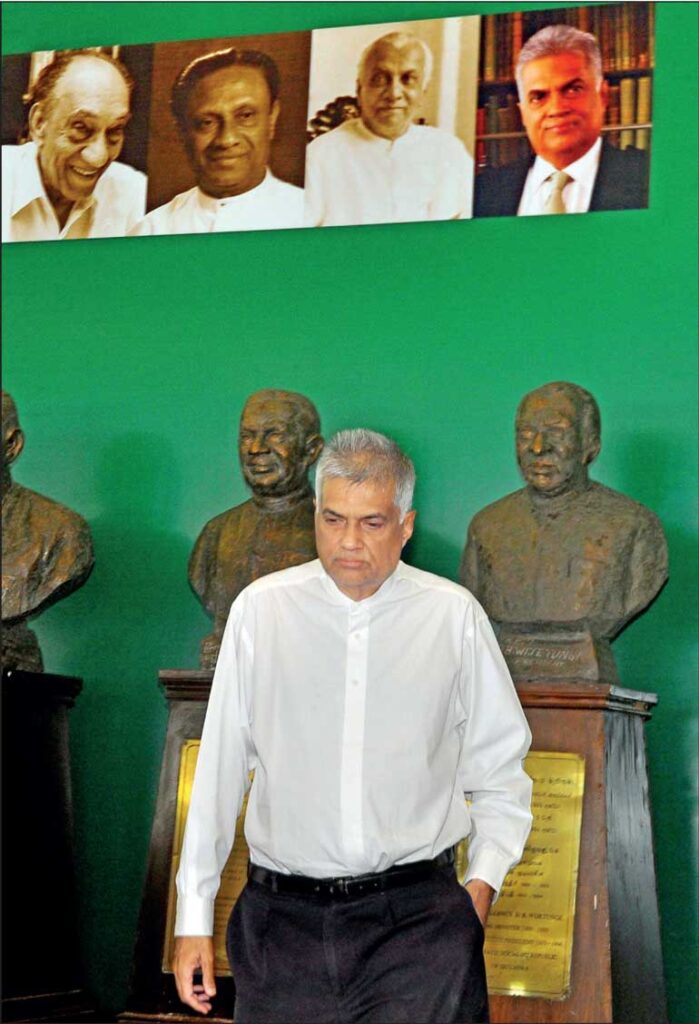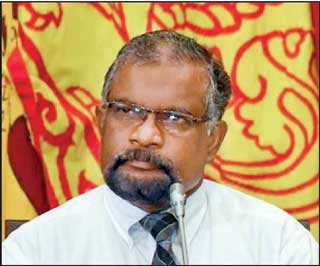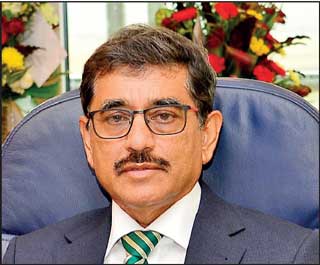
What is known about the domestic debt restructuring (DDR) so far

It now seems that the cabinet has approved a DDR (or domestic debt ‘optimization’ as it is sometimes referred to) package that will most likely entail a maturity extension on T-bills held by the Central Bank of Sri Lanka (CBSL) and a voluntary extension of T-bonds held by the EPF and ETF. While this is considered a ‘soft restructuring’, allaying the fears of those in the financial sector of more drastic measures such as a forced haircut on all Government debt or even a maturity extension and reduction in the coupon on this debt, it is not recognised that it could have certain profound implications for Sri Lanka’s financial system and economy at large over the long-term. This is because it will cause the debt of the Government of Sri Lanka (GOSL), which has hitherto been risk-free, to have a risk premium attached to it.
What is the rationale for the DDR?
The request for the DDR is ostensibly coming from holders of international sovereign bonds (ISBs) as a precondition for their acceptance of a haircut, although it was recently presented to the cabinet by the Governor of the CBSL as necessary for achieving a sustainable level of debt servicing.
A number of commentators are arguing that the proposed DDR is not only ‘soft’ but does not treat all creditors equally; both all domestic creditors vis-à-vis one another and all foreign creditors vis-à-vis domestic creditors. What these commentators do not see is that there is no rationale for the DDR in the first place, at least not one pertaining to holdings of GOSL debt outside of the CBSL.
ISBs are bought in the knowledge that there is a risk of default by the GOSL, i.e., that it would not have the US dollars to service the debt. In contrast, domestic debt is bought in the understanding that they are ‘risk-free’ instruments since the money to service the debt can always be obtained by the GOSL from the CBSL. Foreign investors have the option of investing in local currency bonds but typically prefer to invest in US dollar-denominated bonds such as Sri Lanka’s ISBs to avoid losses emanating from currency depreciation. For example, a 5-year ISB issued by the GOSL in 2014 would have yielded an annual return of 6.4% in US dollar terms, while a 5-year rupee-denominated Treasury bond would have yielded minus 4.7% annually in US dollar terms. To argue that the restructuring of domestic debt should be on a par with the restructuring of foreign currency debt is to argue that the riskiness of the two asset classes is the same. The above example of the returns in respect of the two asset classes belies this.
Of note in this context is the legality of imposing haircuts and the like on domestic holders of Government debt when this debt was purchased on the understanding it is risk (from default) free. Indeed, doing so would be tantamount to changing the rule of the game in the middle of the game, something we doubt could be justified in a court of law.
 |
| Treasury Secretary Mahinda Siriwardena |
 |
| Central Bank Governor Dr. Nandalal Weerasinghe |
The fundamental consequences of the DDR
When taken in conjunction with the proposed Central Bank Act (CBA), the DDR introduces the possibility of default by the GOSL on rupee denominated debt. That is, it introduces a significant element of risk into the calculation of buyers of Government debt where no such risk existed prior to this, changing the fundamental nature of Government debt instruments.
One consequence of the DDR exercise and accompanying change in nature of the GOSL debt instruments is it undermines the use of interest rates on Government securities, especially T-Bills, as benchmarks for interest rates in respect of the pricing of private sector assets. With Government debt carrying a risk premium that is subject to variation, the interest rates on this debt can no longer be seen as a reliable benchmark for private sector debt and other asset classes. This begs the question what will replace the interest rate on Government debt as the benchmark rate.
A second consequence of the DDR exercise and accompanying change in the nature of Government debt is that it will put upward pressure on Government interest rates and via these the entire gamut of interest rates in the Sri Lankan economy. Henceforth, the Government of Sri Lanka will have to pay a risk premium to attract buyers of its rupee denominated debt, with variations in this premium depending on the economic environment and the pressures exerted on the Government’s budget.
This means the premium could rise exerting upward pressure on interest rates in the Sri Lankan economy in the context of global economic downturns when typically the budget deficit expands due to a shortfall in revenues and increased demands on Government expenditure to mitigate the impact of the global recession on domestic economic activity. To limit the rise in interest rates the GOSL would have to try to temper the rise in the budget deficit resulting in it being less able to mitigate the damaging impact of recessionary global forces on the domestic economy.
In other words, the DDR exercise could well worsen Sri Lanka’s debt sustainability over the long-term even though it may tick all the sustainability boxes over the short-term. The damage done by the proposed DDR could in principle be somewhat mitigated if it is made clear that any future DDR would also be limited to CBSL holdings of T-bills. This would, however, be a hollow assurance if the CBA is passed and the CBSL is no longer permitted to buy GOSL debt. In which case it would be clear that the burden of restructuring domestic debt would fall on the holders of this debt in much the same way the restructuring of foreign debt would fall on the holders of this debt. This raises the question of who would want to hold GOSL rupee denominated debt given the ever-present danger of default whenever a shock hits the system.
Source: DailyFT



